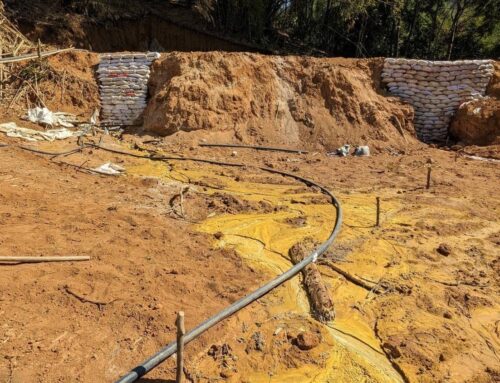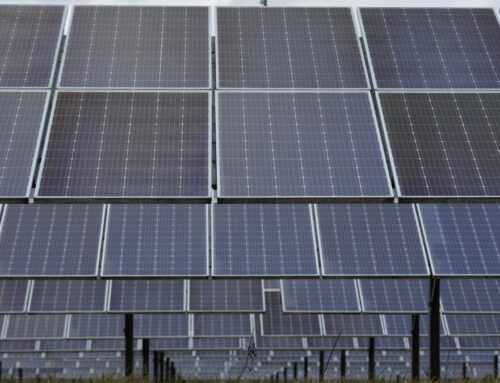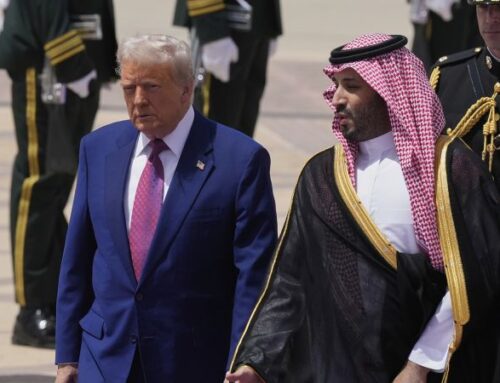New treaty could be a ‘game-changer’ for environmental crime in Europe
May 14, 2025
The Council of Europe has just adopted an international treaty which will help member countries to tackle serious environmental crime. This 46-member international organisation upholds human rights, democracy and the rule of law in Europe.
It adopted the Convention on the Protection of the Environment through Criminal Law at the Committee of Ministers meeting in Luxembourg on Wednesday, 14 May, alongside other key environmental objectives.
But legal experts say the Committee missed the chance to legally protect the right to a clean, healthy and sustainable environment for all in Europe.
How will the Convention help countries to fight serious environmental crime?
This legally binding international treaty provides a robust legal framework with which countries can tackle serious environmental crimes that have, at times, gone unpunished or under-prosecuted. Even those that occur across borders.
Developed over two years by experts and stakeholders from the Council’s 46 member states, with contributions from the EU, UN, INTERPOL and civil society groups, it defines and criminalises a wide array of environment-related offences.
States will now be able to prosecute intentional acts that result in environmental disasters that are akin to ecocide.
“This Convention is a game-changer for environmental protection,” Council of Europe Secretary General Alain Berset says.
“It tackles today’s urgent ecological threats head-on and taps into the strength of criminal justice to defend the planet. The Convention is one of the pillars of our new Strategy on the Environment. Together, they mark a bold step forward, linking environmental action with human rights, democracy, and the rule of law.”
Legal experts say environmental measures fall short
Alongside the treaty to protect the environment through criminal law, the Council of Europe also adopted a new long-term environmental strategy. It includes five key objectives:
-
To integrate human rights into environmental policies and vice versa.
-
To strengthen democratic governance in environmental matters.
-
To support and protect environmental human rights defenders, environmental defenders and whistleblowers.
-
To prevent and prosecute environment-related crimes.
-
To protect wildlife, ecosystems, habitats and landscapes.
But environmental law experts say the Council missed a key opportunity to start legally protecting the right to a clean, healthy and sustainable environment for all in Europe.
At a time when Europeans are increasingly affected by the triple planetary crisis of pollution, climate change, and biodiversity loss, they say, states refused to act upon the call by parliamentarians, academics, and civil society by taking decisive action to legally protect the right to a healthy environment.
“It’s outrageous that in 2025, Europe still hasn’t legally recognised the right to a healthy environment as a basic human right,” says Sebastien Duyck, senior attorney for the Center for International Environmental Law (CIEL).
Europe is the only continent which doesn’t recognise the right to a healthy environment
Duyck says that throughout the ministerial negotiations, Switzerland and Norway led the opposition against recognising the right to a healthy environment, despite mounting evidence of the devastating impact of environmental harms.
“Europe should be leading – not lagging – when it comes to human rights,” he adds.
“But the tide is turning. Thankfully, following the lead of France, Slovenia, and Portugal, some governments are hearing the call from citizens and experts to step up and ensure that Europe is no longer the only continent whose regional human rights system does not legally recognise the right to a healthy environment as a basic human right.”
Duyck adds that the Council of Europe must begin negotiations for a protocol to protect this right under the European Convention on Human Rights without delay.
“Environmental destruction has victims – real people experiencing real harms – and until their rights are protected and justice is delivered, civil society will not back down.”
Search
RECENT PRESS RELEASES
Related Post




